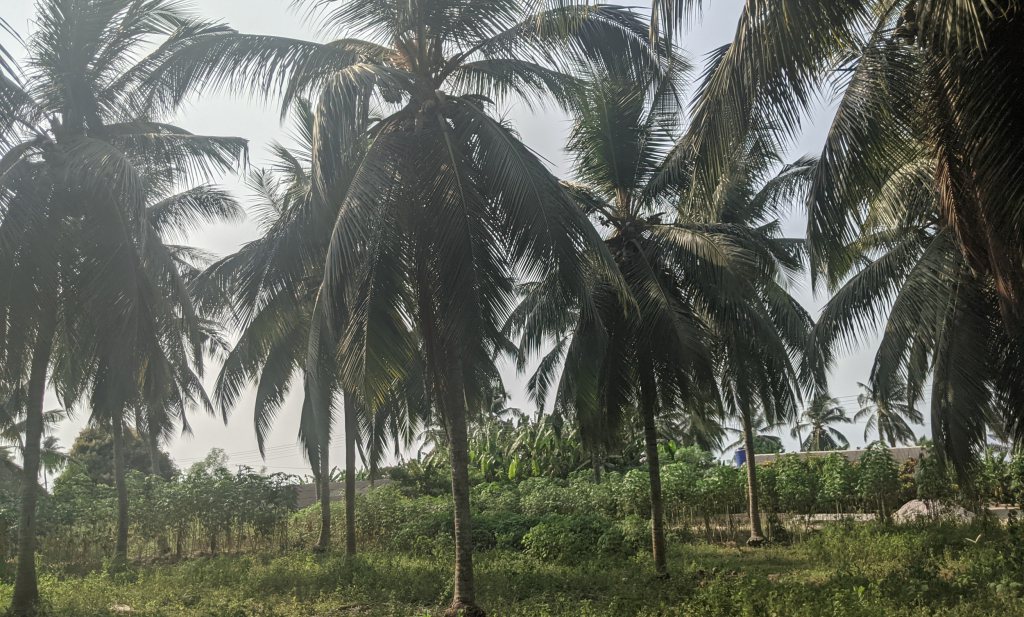In this week's Letter to My Farmers, Babatunde discusses the local technologies that are important to consider in finding solutions where technology isn't available to all farmers.
Farming is a profession of hope; even after doing everything right, we are still hopeful that everything will be positive. Day by day, farmers are able to put more effort into making the hope come alive by adopting simple practices that have been tested locally over a long period of time.
Unfortunately, not all the challenges being faced by farmers have been fully solved by technology or we can as well presume that not all the technologies that would have solved all the challenges of farmers are accessible to all farmers at all times. For instance, for farmers involved in plantation or tree crops who have experienced losses, and still as a result of thunderstrike, which caused severe losses to their businesses that are left in the hand of insurance companies (more of risk transfer) to help them alleviate their losses. However, in some local communities whose plantation is indigenous have devised local practices that have reduced such occurrences of thunderstrike, and there has been no research to improve these practices over the years, and the dissemination has only been to a particular region, community, villages, family or an individual. Therefore, such practices tend to die during the generational shift, and there is no record of such accounts. This and many local technologies no longer see the light of the day due to poor investment in local technologies.
This is a call to key stakeholders to provide the needed support and investment in developing local capacities especially in developing countries, where food production has experienced massive declines in the last few years due to low adoption of advanced technologies, which are alien and unsuitable to the many local environments. Also, we all need to actively promote local technologies in the global market, ensuring that local technologies don't remain only local but can provide the needed solutions to other environments that share similar climatic conditions with ours. This is a new dawn in our agricultural sector, and we should know that what has brought us to this stage might not be able to support us to the next phase of growth. Therefore, we need to innovate around our new realities and explore the best options in ensuring that food produced locally experiences a great boost by doing it in our way and at the same time actively learning from others.
Yours-in-Service,
Babatunde
Unfortunately, not all the challenges being faced by farmers have been fully solved by technology or we can as well presume that not all the technologies that would have solved all the challenges of farmers are accessible to all farmers at all times. For instance, for farmers involved in plantation or tree crops who have experienced losses, and still as a result of thunderstrike, which caused severe losses to their businesses that are left in the hand of insurance companies (more of risk transfer) to help them alleviate their losses. However, in some local communities whose plantation is indigenous have devised local practices that have reduced such occurrences of thunderstrike, and there has been no research to improve these practices over the years, and the dissemination has only been to a particular region, community, villages, family or an individual. Therefore, such practices tend to die during the generational shift, and there is no record of such accounts. This and many local technologies no longer see the light of the day due to poor investment in local technologies.
This is a call to key stakeholders to provide the needed support and investment in developing local capacities especially in developing countries, where food production has experienced massive declines in the last few years due to low adoption of advanced technologies, which are alien and unsuitable to the many local environments. Also, we all need to actively promote local technologies in the global market, ensuring that local technologies don't remain only local but can provide the needed solutions to other environments that share similar climatic conditions with ours. This is a new dawn in our agricultural sector, and we should know that what has brought us to this stage might not be able to support us to the next phase of growth. Therefore, we need to innovate around our new realities and explore the best options in ensuring that food produced locally experiences a great boost by doing it in our way and at the same time actively learning from others.
Yours-in-Service,
Babatunde
Related



